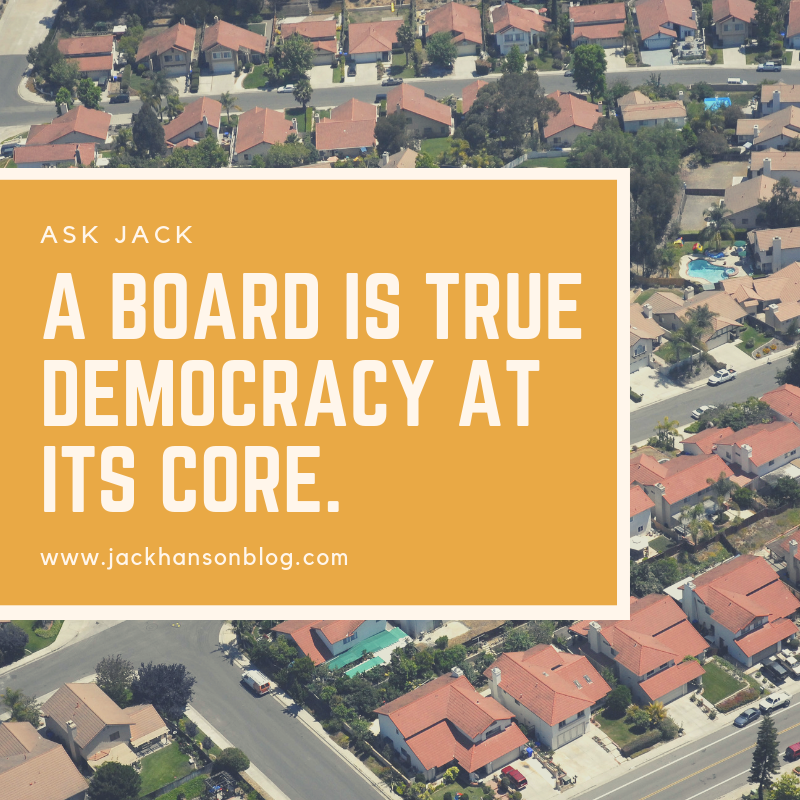What Does a Licensed Community Association Manager Do?
The best community associations act as well oiled machines. While you may never notice the many moving parts contributing to a community’s overall success, there are a few key players acting behind the scenes.
There’s no denying that an HOA Board is an indispensable part of this success (after all, there would be no way to run the association without it!) but there is another important contributor: the LCAM, or Licensed Community Association Manager. Today, I’d like to share some insights that I’ve gained into the position and its responsibilities over my many years in the association management industry.
What is an LCAM?
Think of the LCAM as someone trained and licensed by the state to take stress off of the shoulders of homeowners and Board members living under a Homeowners’ Association or Condominium Association. An LCAM wears many hats, which often include advising the HOA Board and the community, monitoring an association’s finances, acting as a liaison when hiring and handling contractors, and advising the HOA Board on changes in state statutes and the like.
In the community association management industry, we tend to think of an LCAM as only managing HOAs and COAs. In reality, an LCAM is equipped to manage many types of residential properties, including large developments, mobile home parks, and even timeshares. They are not, however, licensed to manage apartment buildings, single family homes, or commercial buildings. Remember – an LCAM is a community manager, not an independent property manager. It’s an important distinction, and one that many people outside of the industry don’t recognize!
Why Does My Association Need an LCAM?
Around two thirds of associations choose to hire professional managers to assist their Boards, while the other third elect to operate without outside assistance. Boards are a crucial aspect of any HOA, and can only be strengthened by the support of an LCAM. Over the years, I’ve always made a conscious effort to become familiar with my communities’ histories and unique needs. In the long run, this helps me strengthen my relationships with both the Board and the community as a whole.
In addition to understand the ins and outs of a specific community, a competent Licensed Community Association Manager possess a breadth of industry knowledge, and can be a valuable resource for a Board to lean on. Boards are able to approach a manager with any issues that arise, and it is the manager’s job to devise a plan to find a solution that meets the Board’s expectations.
Consider that an LCAM is also able to act as a helpful, unbiased liaison on behalf of the Board. Managers recognize that Board members are financially and emotionally invested in the success of the HOA, but professional LCAMs usually do not have personal ties to the communities they manage. Because of this, they are able to guide the Board without any conflict of interest issues arising.
Characteristics of Successful LCAMs
A job in community management will never be the same from one day to the next, and I’ve realized that the most successful community managers thrive on this type of unpredictability. There is always going to be something to do, fix, or improve in this industry, and it’s not a mundane desk job. An LCAM thrives under pressure! Anyone who enjoys getting to know a community, its members, and being able to witness the “fruits of their labor” may also be a great fit for the job. It is certainly wonderful feeling to directly contribute to a Board’s success.
So, what is an LCAM expected to handle on a day-to-day basis? Join me as I dive further into the topic in my next blog post, “What Does a Licensed Community Association Manager Do? Part 2” for a deeper understanding of what a day in the life of an LCAM may involve.
Jack





Simply want to say your article is as astounding. The clearness in your post is just cool and i can assume you’re an expert on this subject. Fine with your permission allow me to grab your RSS feed to keep updated with forthcoming post. Thanks a million and please keep up the enjoyable work.|